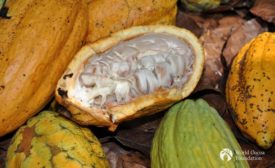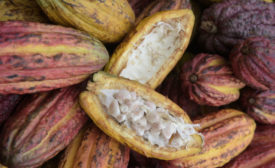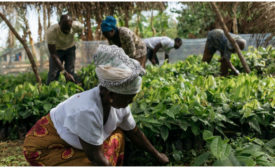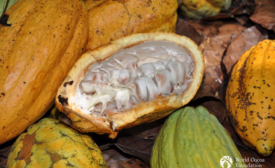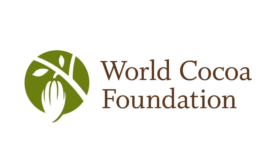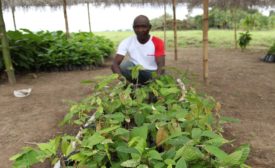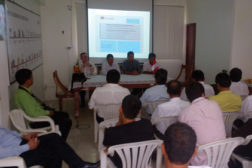Home » cocoa production
Articles Tagged with ''cocoa production''
Informing chocolate consumers about growing process, social responsibility imperative to industry's success.
Read More
Mars aims to triple cocoa yield through development of disease-resistant cocoa
Company, cocoa farmers to tap genetic knowledge to improve crops, reduce pesticide use.
May 7, 2018
Seeing cacao at the source
Alfred Ritter offers Candy Industry opportunity to see cacao growing operation in Nicaragua.
May 2, 2018
Hershey launches Cocoa For Good sustainability program
The company plans to make a $500-million commitment by 2030.
April 3, 2018
CocoaAction Report Card: Room for improvement
Progress made, but challenges abound for cocoa industry to ensure there’s chocolate for future Halloweens.
November 1, 2017
WCF hosts annual Latin America talks in Ecuador
World Cocoa Foundation discussions focus on cocoa flavor, quality.
September 8, 2016
Barry Callebaut, IFC, IDH partner for $9-million, credit-based productivity package program
Program to support up to 103,000 smallholder cocoa farmers in Cote d’Ivoire by 2020.
August 18, 2016
Keep the info flowing with our eNewsletters!
Get the latest industry updates tailored your way.
JOIN TODAY!Copyright ©2024. All Rights Reserved BNP Media.
Design, CMS, Hosting & Web Development :: ePublishing


